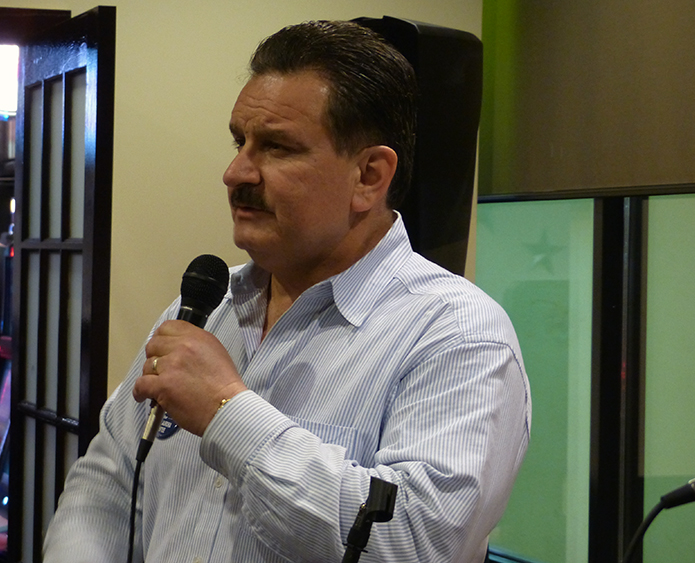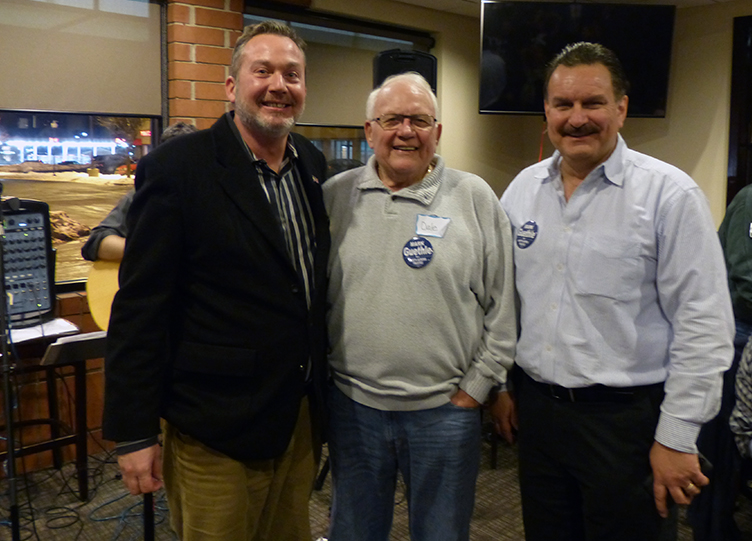
North Aurora trustee Mark Guethle is running to retain his seat on the North Aurora Village Board in the upcoming April 7 election. Jennifer Rice/staff photographer

By Jennifer Rice
Managing Editor
Thursday, Jan. 22, 2015
Email Jennifer Rice at: jen@foxvalley
labornews.com
NORTH AURORA — Current village trustee Mark Guethle is looking to retain his seat on the North Aurora Village board — but he’s not alone. Four other candidates are running, with only three seats available. Running on the April 7 ballot along with Guethle are incumbents Laura Curtis and Mark Carroll, along with Anise Hesson and Alan Cavender. Each seat is a four-year term.
Guethle was a trustee from 2003 to 2005, and 2009 to the present. Carroll was appointed to the board in May 2014 to replace Ryan Lambert, who quit when he became chief of the North Aurora and Countryside Fire Protection District. Lambert’s term expires this year. Curtis is in her first term as trustee.
Friends and family gathered Jan. 15 to support Guethle at his fundraiser, held at Oak Street Restaurant.
He explained North Aurora is growing. Last year, it acquired 22 new businesses, including Massage Envy, BP Gas Station and a Dunkin’ Donuts. A Marriot Fairfield Inn & Suites is coming to the west side of North Aurora.
“This has happened with the hard work and effort of our board, the mayor and our staff working collectively for the good of our town,” Guethle said.
Village President Dale Berman said Guethle always, “gives it hell,” and expects nothing less from him this election.

From left, Aurora Township Supervisor Bill Catching and North Aurora Village President Dale Berman show their support for village trustee Mark Guethle. Jennifer Rice/staff photographer
“He’s a tiger. He never quits. I’m proud to have him on our village board and for him to continue to do great things for the village of North Aurora,” Berman said.
The village has a pro-business climate, which has led to four straight years of economic sales growth, and a $3 million surplus from last year.
As Director of Painters District Council 30’s Governmental Affairs, Guethle acknowledged fellow union members who attended his fundraiser. He was proud to announce that photographs of completed projects used on his campaign literature were union projects that came in, “on time and under budget.”
As a 15-year resident of North Aurora, Guethle and his wife Louise are active in the North Aurora Lions Club, North Aurora Days and the Blessed Sacrament Church.
“I feel it’s important to stand up for our community, and that’s what I’m doing. You learn by listening to people,” Guethle said.
